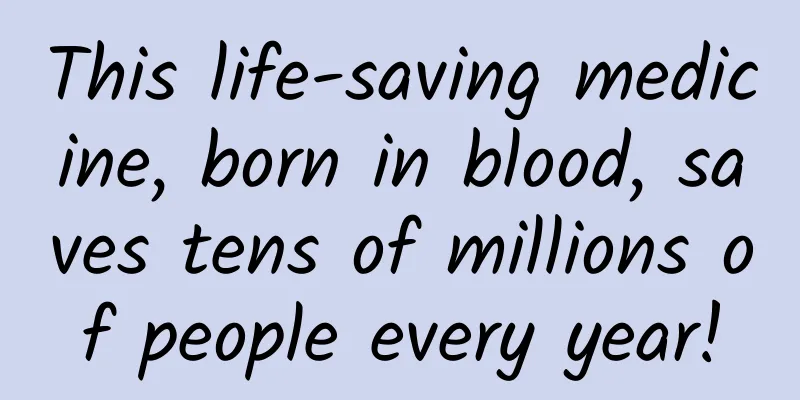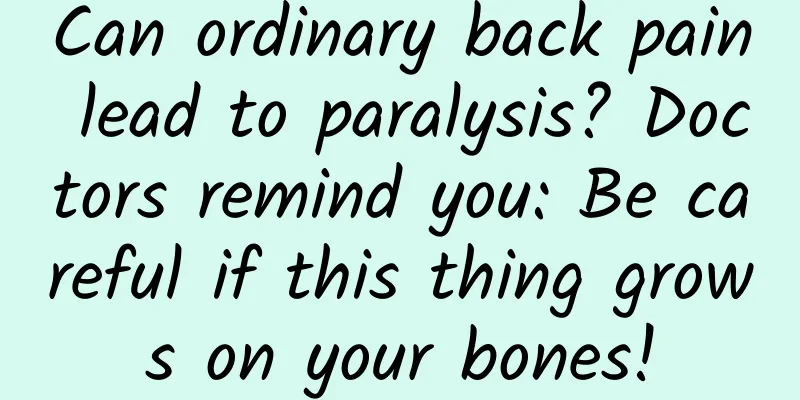I itch, I scratch, therefore I exist - the scientific secrets of itching

|
The so-called itch is a kind of discomfort that makes people have a strong desire to scratch. Itching is painful, scratching is happy, which is an excellent portrayal of this feeling. The pain of itching and the pleasure of scratching There are many vivid examples of "pain from itching and pleasure from scratching" in ancient and modern times, both in China and abroad. Du Mu, a great poet in the late Tang Dynasty, had a deep understanding of scratching, as evidenced by his poem: "Reading Du's poems written by Han Yu is like asking Magu to scratch your itch." The general meaning of this poem is: reading beautiful articles is as joyful as the beautiful fairy Magu scratching you with her clever and slender hands. According to legend, the fairy Magu's fingers are as slender as chicken claws, also known as "Magu claws." According to historical records: "When the back is itchy, it is good to get these claws to crawl on the back." The great French writer Montaigne believed that scratching is one of the actions that can easily make people feel the sweetest satisfaction. It is true that what else can be compared with scratching, which is so easy to do and can make you feel satisfied immediately? However, the continuous and uncontrollable itch makes people want to die, and it is even more uncomfortable than pain. As the saying goes, "Pain is bearable, but itching is not; bitterness is bearable, but sourness is not." Dante, a great poet of the Renaissance, wrote in "The Divine Comedy: Inferno": "The best way to punish counterfeiters in hell is to make them covered with scabies from head to toe, which is extremely itchy. They can only dig their nails deep into the flesh, but it can't stop the itch!" In many portraits, French Emperor Napoleon has an unusual classic posture, which has aroused the interest of many researchers. His right hand is habitually inserted into his coat, while his left hand is placed behind his back. After research, some researchers believe that Napoleon suffered from some skin disease, such as scabies, which caused dry, peeling and itchy skin, so he had to put his hands on his chest to scratch it. This may be the origin of the famous "Napoleon's itch".
The meaning of itch I itch, I scratch, therefore I exist. But why do I itch? What is itching? Why does it itch more the more I scratch? These are not only the puzzles of you and me, but also the puzzles of scientists. The skin of animals is the first barrier of the body to resist external damage. Pain, touch and temperature are all the most basic senses of animals. Because of pain, we hide; because of touch, we feel tenderness; because of temperature, we know cold and hot. With pain and touch, why do we still feel itchy? From the perspective of evolution, it is because of the need for survival. Our ancient ancestors were half-naked and lived in the primeval forest full of dangers. Every day, they had to face threats from tigers, wolves, jackals and leopards to mosquito bites. So, how should humans prevent mosquito bites? There must be a way to warn the body that it has been invaded, and this may be the origin of the existence of itching. In this way, itching is a special alert and protection mechanism.
The relationship between itching and pain Many people believe that itch and pain are inseparable, and that itch is just a mild manifestation of pain. Traditional Chinese medicine explains itch as a kind of qi that wanders in the skin but is not strong enough to become pain. Studies have shown that people who are afraid of itching are also more afraid of pain. If it itches, you will scratch it involuntarily; if it hurts, you will shrink and avoid it reflexively. If it hurts, you dare not touch it, and you will jump when you touch the painful part, but the pleasure of scratching the itchy part is indescribable. Obviously, itch and pain are completely different feelings. The sensory information of pain and itch is transmitted by roughly the same sensory nerve pathways. Itch receptors are distributed throughout the nerve endings of the skin. The itch signal is transmitted to the central spinal cord through the dorsal root ganglia in the peripheral nervous system, and then transmitted from the spinal cord to the brain. However, the receptors on the skin can transmit both itch and pain, which has caused controversy. How do nerve cells and neural circuits distinguish which is itch and which is pain? Are there nerve cells in the nervous system that are dedicated to transmitting itch? If so, what "secret codes" do these nerve cells use to exchange and transmit information? Discovery of itch genes and itch neurons For nearly a hundred years, scientists have been trying to find genes and nerves that specifically transmit itch information, and have been arguing about this. Many scientists do not believe that there are specific itch genes or nerve cells. In 2007, this question finally had an unexpected answer. In an experiment, a research team at the University of Washington led by Professor Chen Zhoufeng "accidentally found a gene called gastrointestinal releasing factor receptor (GRPR) in many genes, and the expression of the gene is very important for transmitting sensory information. At first, the researchers imagined that the gene was important for pain perception, but after removing the gene and knocking out GRPR, the mice responded to pain stimulation completely normally, which overturned this assumption. In the midst of disappointment, the researchers were not discouraged. After they injected gastrointestinal releasing factor (GRP) into the spinal cord of mice, the mice immediately scratched. This unexpected surprise revealed the tip of the iceberg of the secret of itch perception. It can be seen that GRP or GRPR has nothing to do with pain, but is the first polypeptide and its receptor that specifically transmits "itch perception". After further experiments, the researchers found that if the neurons that release GRPR in the spinal cord of mice were killed, the mice would not scratch no matter what kind of itching substance was injected into the mice. This shows that mice without GRPR neurons have completely lost the sense of itch. However, these mice that have lost the sense of itch have completely normal responses to various pain stimuli. These findings proved for the first time that pain and itch can be separated at the molecular and cellular levels. It can be seen that the mechanism of itch is as follows: when the skin comes into contact with a certain itching substance, it will cause a series of inflammatory reactions, causing the central terminal of the dorsal root neurons to quickly release GRP and activate its receptor GRPR, so that the itch information is quickly transmitted to the brain through the itch neurons in the spinal cord, and the brain will issue corresponding commands to guide the hand to scratch the itchy area. Is using pain to relieve itching a poison to quench thirst? Although itch and pain are transmitted through different spinal nerve cells, pain can inhibit itch. Usually when acute itch occurs, the slight pain caused by slight scratching is enough to relieve the itch. In other words, the purpose of scratching is to create pain and stop the itch with pain. In fact, everyone has many similar experiences in life. When bitten by a mosquito, it is itchy, but it stops itching when it hurts. However, it is difficult to get the pleasure of "stopping the itch with pain" by "scratching the itch through the boot". As for chronic itching, such as skin allergies, psoriasis, crotch eczema and athlete's foot, although scratching can stop the itch temporarily, it will soon become more itchy, and the more itchy it is, the harder you have to scratch. In this case, stopping the itch with pain can only have a counterproductive effect. One possible explanation for this is that the pain caused by scratching will activate the brain's analgesic system, but the neurotransmitters that inhibit pain may also stimulate the transmission of itch information at the same time. The result is that the more itchy you are, the more you scratch, and the more you scratch, the more itchy you are, thus forming a vicious circle. Itch is a psychological disease When it itches, the human body will feel uncomfortable. This discomfort is not only physical, but also psychological. The so-called "itchy hands" or "itchy skills" both describe the unbearable and tormenting itching. Some people scratch their scalps when they can't answer questions; when a familiar person tickles your armpits, you will laugh because of the itch; when someone touches your soles, you will laugh wildly because of the itch; and it is much more pleasant to have someone tickle you than to have someone tickle you yourself... These are all due to psychological factors. Itching, like yawning, is highly contagious. When you see someone yawning, you will also yawn; and when you see someone tickling, you will also scratch uncontrollably. Chronic itching and psychological factors have a greater impact. Such patients often toss and turn, unable to sleep at night, and suffer extremely. The discovery of itch genes and itch neurons does not mean that all the secrets of itch have been cracked. On the contrary, this is only the first step in a long journey. There are still many more questions that need to be studied in depth, such as how is the itch signal formed in the first place? How is the itch information transmitted from the spinal cord to the brain? How does the brain distinguish between itch and pain? Are there neurons in the brain that are specifically responsible for transmitting itch information? How do different diseases activate itch receptors? Cold water can relieve itch, but hot water intensifies itching. Why is this? Pain can make you unforgettable; itch, on the other hand, can make you think about it day and night. Itch and pain are important indicators of the existence of life. Studying their occurrence and transmission is fascinating and interesting. Our scientific understanding of itch has just begun... |
Recommend
What are the dangers of IVF to women?
With the development of modern medical technology...
How to get rid of athlete's foot, sweat and foot odor
Athlete's foot, sweaty feet and smelly feet a...
Treatment of simple endometrial hyperplasia
Simple hyperplasia of the uterine content is a co...
Breast ptosis plastic surgery, these knowledge points should be understood
In response to the situation of sagging breasts, ...
Can I eat longan when I am pregnant?
It is generally not recommended for pregnant frie...
Is it painful to remove the Mirena IUD?
There is some pain in removing the Mirena IUD, bu...
How to maintain the uterus after miscarriage
The uterus is a physiological characteristic of w...
Dandruff during pregnancy
In the early stages of pregnancy, many women will...
What are the symptoms of hormone deficiency in women?
Hormones are sex hormones in the human body. Abno...
Can kidney patients eat hairy crabs? Eat them with confidence if you follow these points!
Hairy crabs are delicious and are a favorite of m...
What to do if your pubic hair is itchy
In our daily lives, health has become a hot topic...
Four kinds of fruits for slimming legs, if you want to lose weight, take a look
Every beauty-loving woman hopes to have a pair of...
Unpleasant odor during menstruation
Many women know, and we are most familiar with it...
What to do if a woman has a scar on her knee
The knee is an important joint in the human body ...
Is it normal to have gas during pregnancy?
During pregnancy, a woman's body will undergo...









